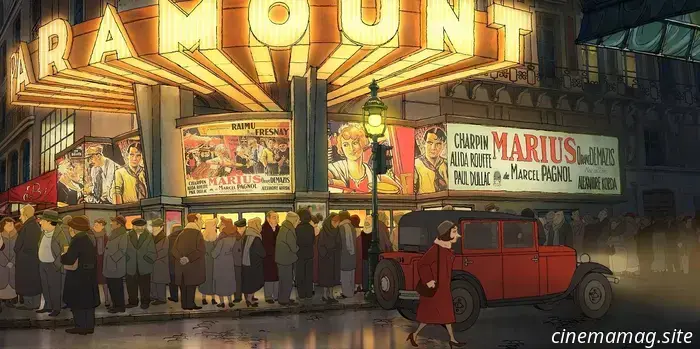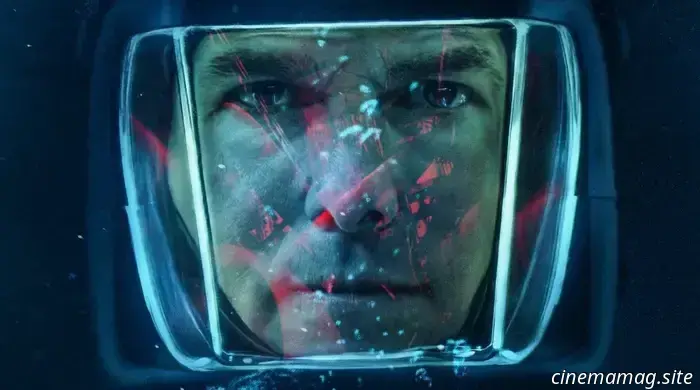
Writing by Committee - Exploring the Boundaries of AI - MovieMaker Magazine
It is often claimed that in exceptional novels, the plot takes the reins from the author, and characters begin to make their own choices. Recently, this idea has shifted from being a metaphorical expression to a tangible reality. Technology is beginning to demonstrate these abilities, prompting us to explore this within the 21st-century framework and allow AI to drive a narrative in order to 'explore' its limits and ours.
While it may seem straightforward to simply let AI handle the writing, our aim was to ascertain how much human involvement was necessary, when it was required, and how we would cope with the prospect of being challenged or replaced by machines.
The sentence above could serve as the prompt for a dystopian romance in itself, but for this endeavor, we opted for a story set in the arts; specifically, London in the 1970s. We decided to craft a fictional account of a musician from the 22nd century, a time when AI had taken over all creative tasks, who travels back in time to achieve rockstar status akin to what is documented in history.
Why, you ask? Firstly, personal preference—an aspect that AI lacks. Secondly, it was fascinating to observe how the AI navigated between real-life names and locations alongside fictional elements, creating a seamless, coherent, and enjoyable read.
It’s What You Ask, Not How You Ask It
The quality of the prompts directly influences the results.
Thus, before diving into the story, we posed a straightforward question to ChatGPT: “What are the fundamentals of writing a story?” The response highlighted these six elements:
1. Character
2. Setting
3. Conflict
4. Plot
5. Theme
6. Resolution
After engaging in thoughtful discussion, we concluded that we had a grasp on the first two components, a vague notion of the theme, were significantly lacking in a solid plot, and the resolution appeared distant.
Following several additional inquiries regarding the meanings of these elements, and providing the AI with the brief you read in the introduction, we received the edgy character of Vian Echo, along with his band—aptly named Vian Echo & The Reverbs, inspired by a 70s guitar enthusiast. Thus, the tale of a futuristic rebel time traveler emerged, who journeys to become a music legend, ultimately falling in love and choosing a humble existence in the 20th century over fame and fortune.
Deus Ex Machina & Self-Criticism
From the outset, we recognized that the AI could establish an engaging theme and captivate readers with the setting. The wealth of stories it was trained on proved beneficial, as reflected in lines such as: “The air smelled of vinyl, sweat, and revolution. Guitars shouted from Camden basements, and poets recited lyrics through faulty amplifiers. Yet, one voice seemed out of place—not really,” followed by, “Back home, music was algorithmically perfect. The machines hadn't stolen creativity; they had merely executed it more effectively. Too perfectly. Too predictably. Until human noise became irrelevant.”
While the setting was established, the actual plot felt overly contrived for fiction and too idealistic, with love triumphing in the end. We aimed for a narrative that classic rock enthusiasts would appreciate and that a broader audience would enjoy. Inquiring about alternative directions without sufficient analysis led to random 'Deus Ex Machina' situations where unexpected events unfolded without real impact.
What helped advance the plot was straightforward: we took control instead of aimlessly prompting until a better narrative emerged, using the AI as a tool to identify and address the story's weaknesses one by one.
We asked it to critique its own writing from both a critic's and a reader's perspective, revealing what remains a common characteristic of AI: in this context, it conveyed a suitable tone, good ideas, but a lack of character depth and missed opportunities for plot development—an elegant concept lacking real stakes.
This principle extends well beyond writing. AI tools are increasingly utilized to explore a variety of creative and emotional realms, some more playful than profound. During one phase of our experiment, we investigated character development tools in adult storytelling.
One test concept involved a playful college student named Riley, traversing her blurred boundary between performative confidence and genuine self-discovery, entirely developed through prompts and backstory within Candy AI Nude.
We weren't attempting to write erotica; rather, we were curious if AI could balance subtlety with playfulness. Could it create tension, charm, and even humor without resorting to clichés? Surprisingly, it could. The tool allowed us to shape Riley's character: curious yet skeptical, expressive yet grounded. She evolved beyond just a fantasy template; with sufficient prompting, she became a character capable of dialogue interaction and ultimately transitioned into a screenplay draft.
Working on Riley’s narrative illuminated AI character design in a new dimension, not merely as a tool for adult content, but as a means to explore taboos, identity, and emotional

Other articles
 Dwayne Johnson is reuniting with A24 for a project titled Breakthrough.
Dwayne Johnson appears to be gaining favor with A24, as the film company has signed him on for another significant project. According to Deadline, Johnson will be starring in Breakthrough, a new psychological thriller written by Zeke Goodman. A director for the film has not yet been appointed. The narrative takes place in Southern California at the turn of the millennium and centers around an isolated young [...]
Dwayne Johnson is reuniting with A24 for a project titled Breakthrough.
Dwayne Johnson appears to be gaining favor with A24, as the film company has signed him on for another significant project. According to Deadline, Johnson will be starring in Breakthrough, a new psychological thriller written by Zeke Goodman. A director for the film has not yet been appointed. The narrative takes place in Southern California at the turn of the millennium and centers around an isolated young [...]
 Jafar Panahi's It Was Just an Accident Takes Home the Palme d'Or; Check Out the Complete List of Cannes 2025 Winners.
The Cannes jury, led by Juliette Binoche, has announced the winners for this year's festival, with Jafar Panahi's It Was Just an Accident taking home the Palme d'Or, marking NEON's sixth consecutive victory. The Grand Prize went to Joachim Trier's Sentimental Value, while a tie occurred for the Jury Prize between Oliver Laxe's Sirat and Mascha Schilinski's The Sound of Falling.
Jafar Panahi's It Was Just an Accident Takes Home the Palme d'Or; Check Out the Complete List of Cannes 2025 Winners.
The Cannes jury, led by Juliette Binoche, has announced the winners for this year's festival, with Jafar Panahi's It Was Just an Accident taking home the Palme d'Or, marking NEON's sixth consecutive victory. The Grand Prize went to Joachim Trier's Sentimental Value, while a tie occurred for the Jury Prize between Oliver Laxe's Sirat and Mascha Schilinski's The Sound of Falling.
 Cannes Review: Sylvain Chomet’s A Magnificent Life is a Sweet Homage to Marcel Pagnol.
It’s not unusual for a successful artist to be inquired about the advice they would offer their younger self; however, one film from this year's Cannes Specials selection takes a different approach. In Sylvain Chomet’s animated feature A Magnificent Life, the French playwright, filmmaker, and inventor Marcel Pagnol, aged 61, is on the verge of abandoning his career, so
Cannes Review: Sylvain Chomet’s A Magnificent Life is a Sweet Homage to Marcel Pagnol.
It’s not unusual for a successful artist to be inquired about the advice they would offer their younger self; however, one film from this year's Cannes Specials selection takes a different approach. In Sylvain Chomet’s animated feature A Magnificent Life, the French playwright, filmmaker, and inventor Marcel Pagnol, aged 61, is on the verge of abandoning his career, so
 I watched Mission: Impossible - The Final Reckoning so you don’t have to.
EJ Moreno shares his insights on the newest Mission: Impossible installment. Join me as I take a sharp look at Mission: Impossible—The Final Reckoning. With respect for the previous film and for Tom Cruise, this movie should be straightforward to commend, yet it hardly meets expectations. To reference the well-known Family Guy segment, "It insists on [...]
I watched Mission: Impossible - The Final Reckoning so you don’t have to.
EJ Moreno shares his insights on the newest Mission: Impossible installment. Join me as I take a sharp look at Mission: Impossible—The Final Reckoning. With respect for the previous film and for Tom Cruise, this movie should be straightforward to commend, yet it hardly meets expectations. To reference the well-known Family Guy segment, "It insists on [...]
 Evil Dead Rise expands its cast by adding possible Deadite victims.
Burn, baby, burn! Evil Dead Burn has completed its casting with Hunter Doohan, Luciane Buchanan, and Tandi Wright joining the splatter horror movie, where they will appear alongside previously announced cast member Souheila Yacoub. The film will be directed by Sébastien Vaniček, known for the spider horror film Infested. […]
Evil Dead Rise expands its cast by adding possible Deadite victims.
Burn, baby, burn! Evil Dead Burn has completed its casting with Hunter Doohan, Luciane Buchanan, and Tandi Wright joining the splatter horror movie, where they will appear alongside previously announced cast member Souheila Yacoub. The film will be directed by Sébastien Vaniček, known for the spider horror film Infested. […]
 New Funko Pop! Vinyl figures of Chucky are on the way.
Funko has announced three new Pop! Vinyl figures based on Syfy's Child's Play sequel series, Chucky. These figures depict three versions of the infamous killer doll: Melted Face Chucky, Old Chucky, and Phantom Chucky. Take a look at them here... SEE ALSO: Chucky from Child's Play receives a reimagining in the Bishoujo Series by Kotobukiya. Make some space in your collection […]
New Funko Pop! Vinyl figures of Chucky are on the way.
Funko has announced three new Pop! Vinyl figures based on Syfy's Child's Play sequel series, Chucky. These figures depict three versions of the infamous killer doll: Melted Face Chucky, Old Chucky, and Phantom Chucky. Take a look at them here... SEE ALSO: Chucky from Child's Play receives a reimagining in the Bishoujo Series by Kotobukiya. Make some space in your collection […]
Writing by Committee - Exploring the Boundaries of AI - MovieMaker Magazine
It is often said that in exceptional novels, the plot takes charge away from the author, allowing characters to make their own choices. Recently, this notion has been validated.
